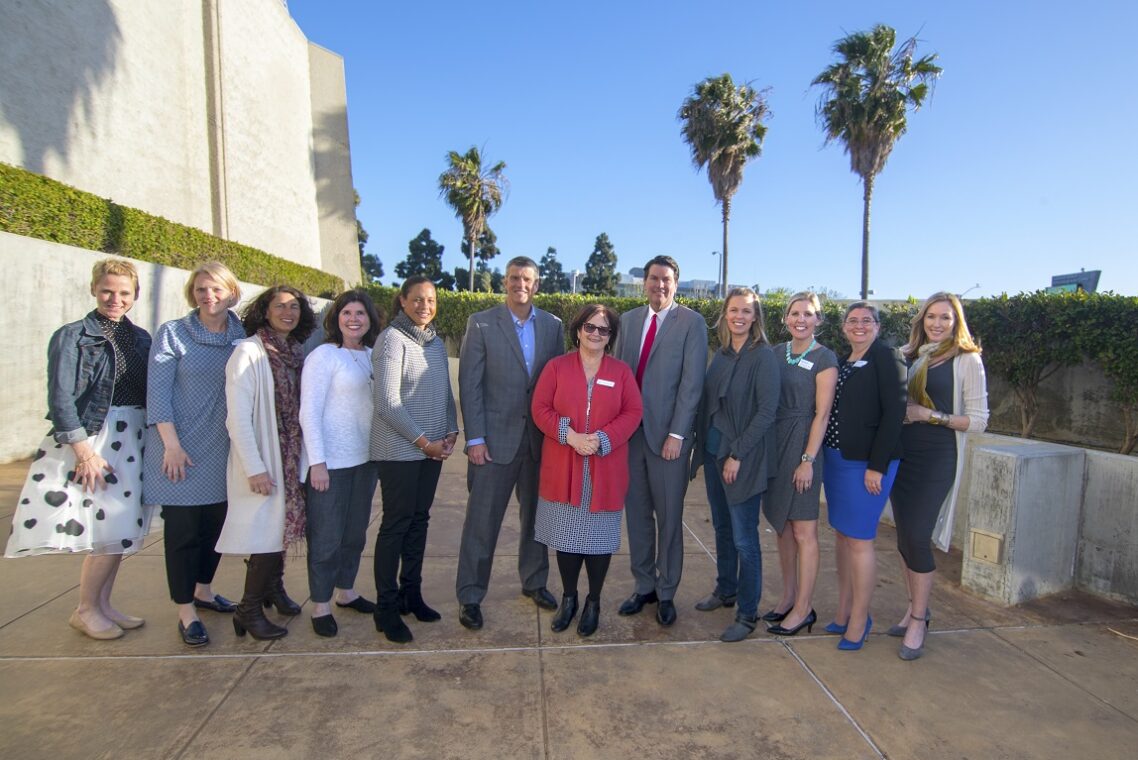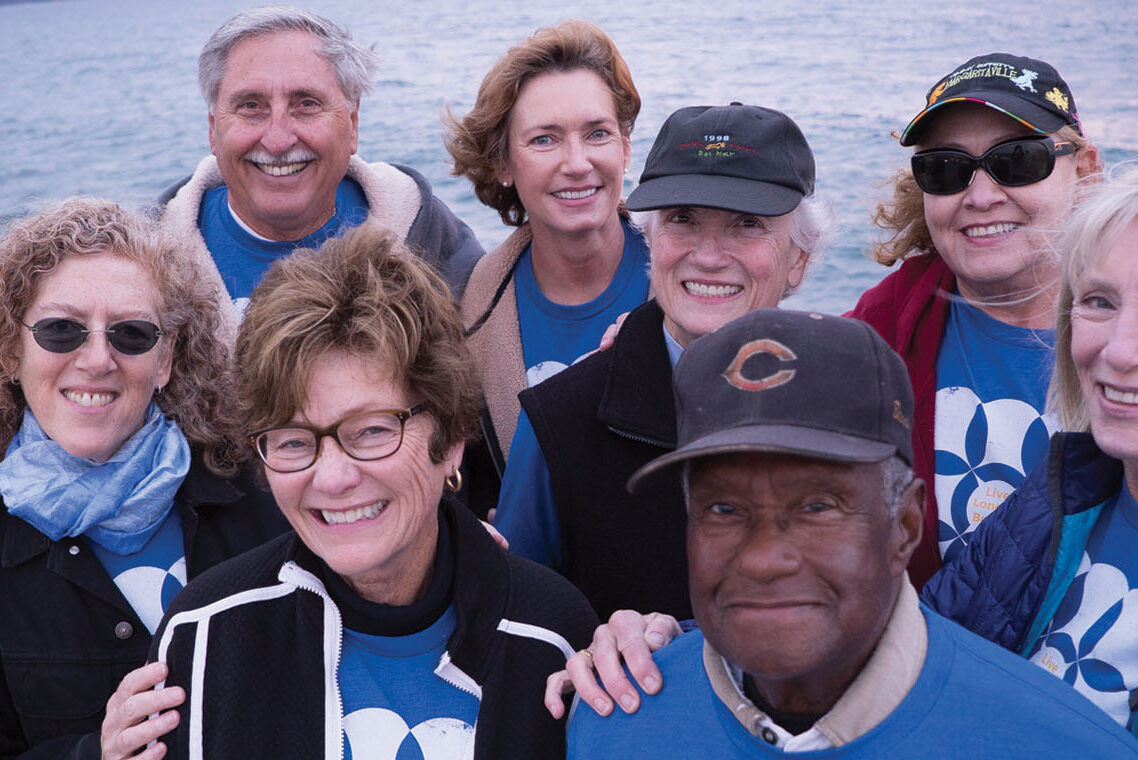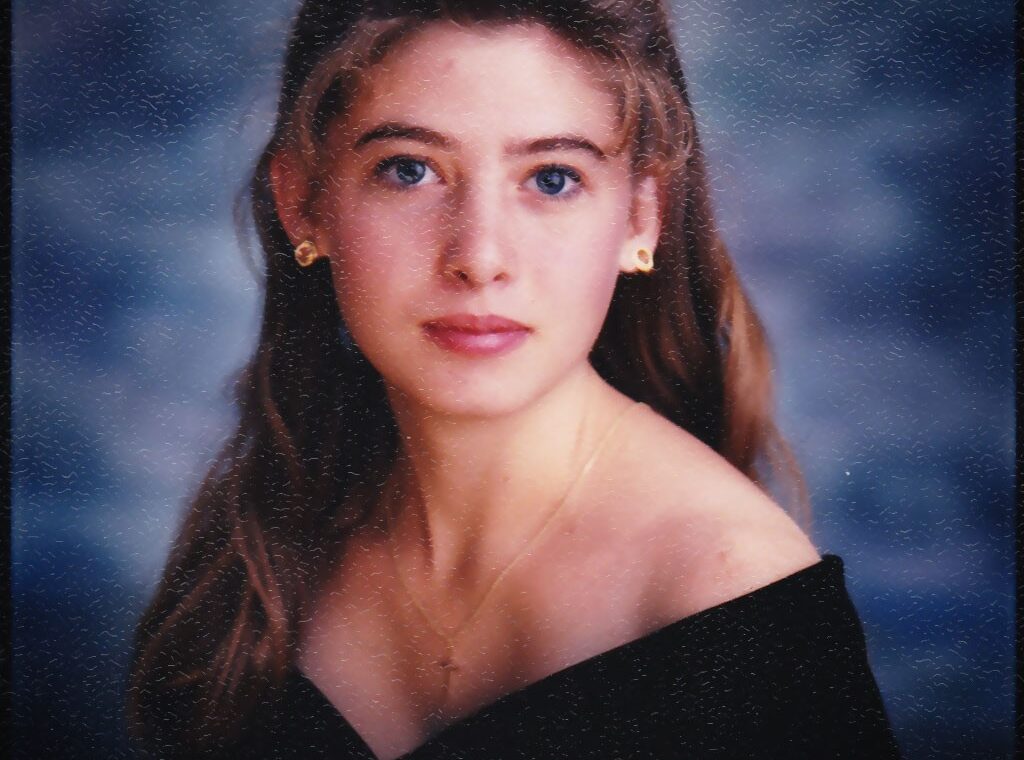Greg Flaxman typically enters into the lives of his clients during difficult periods of transition and uncertainty. Such was the case early in his career when he met 65-yearold Frank Selders in September 2013.
Frank, who is legally blind and copes with his fair share of other health struggles, had just lost his long-time caretakers and needed immediate assistance with errands and transportation to remain living in his home.
On the advice of a friend, he put in a call to Beach Cities Health District (BCHD), located just blocks from his home in South Redondo. And not long after, a soft-spoken, 26-yearold social worker, who Frank affectionately calls “one of the most special people you’ll ever meet,” was standing on his doorstep.
“That was honestly the best piece of advice I’ve probably ever received, because it brought Greg into my life,” said Selders.
Greg, now 31, is a Care Manager in BCHD’s Community
Services Department, specializing in caring for older and disabled adults in the Beach Cities. On any given day, Greg, who holds master’s degrees in social work and public health from UCLA, has 70–80 clients on his caseload, most of whom, like Frank, are struggling to live independently in their homes due to health issues and isolation.
Greg’s job is to help his clients stay put, for as long as safely possible, by developing customized care plans and connecting them with BCHD health programs and resources
like errand assistance, in-home exercise, social-emotional support, subsidized home care and meals, and more. This long-term, specialized care is often the difference between older adults being able to continue living in their homes or being uprooted for assisted living facilities.
“He’s just really well-suited for his line of work,” said Selders, who praises Greg for helping him stay in his home despite recent bouts with cancer and liver and kidney transplants. “Young men aren’t generally known for being empathetic, but Greg has genuine compassion and concern for people. He has a mature understanding of what older people are going through. And he really listens.
“Most of my family has passed away, I never married and don’t have children to care for me, so it’s very reassuring to know he’s always just a phone call away.”
We sat down with Greg to learn about the work he’s doing to help older and disabled adults in the Beach Cities as well as what inspired him to dedicate his professional life to geriatric social work.
Q: How did you get involved with social work?
A: “My first exposure to social work was seeing my grandparents age, and the support that they needed. I was actually with them when a hospice social worker visited their home for the first time. I saw how intimate of an experience it is to help a family during its most vulnerable moment and really support them. And I was drawn to that type of work.”
Q: How many clients are you caring for currently?
A: “Right now, between 70 and 80. But it fluctuates a bit. I’m one of five social workers in the Community Services Department and, collectively, we manage roughly 430 cases in the Beach Cities.”
Q: Is there any cost for your services?
A: “No, there isn’t. Any aging or disabled resident in need can have access to a BCHD social worker at no cost. And they can stay on our caseload for as long as necessary. There’s no time limit, which makes our service especially unique. It also allows us to provide a continuum of care to our clients as they age and keep them living in their homes for as long as safely possible.”
Q: You work with people who are generally nearing the end of their lives. Do you find that part of the job emotionally difficult?
A: “Yeah, it’s especially hard to see someone’s health decline. Maybe someone you knew as a vibrant person before is afflicted with some disease or illness, and it’s a progressive disease, so you see them fade mentally or physically. That part of the job is really tough because we form connections with our clients. We build relationships and establish trust so they are comfortable coming to us when they need help. So, yeah, it can be very emotionally difficult, but it’s my job to provide quality care and do everything I can to preserve their quality of life.”
Q: What health trends are you seeing in the older adult population?
A: “We are seeing a higher prevalence of dementia as our local population continues to age. It’s a very challenging disease because of the toll it takes, not just on those afflicted but also on family and friends who may be struggling to cope and care for their loved one. It’s difficult to watch someone you love change due to the disease. And there’s currently no cure for dementia, which makes it especially hard for caregivers and family members to process the experience, so it’s really important that they receive support and take time to care for their own health, too.”
Q: So in a situation where there’s no cure, like dementia, what can be done to help that client?
A: “Well, it starts with simply being a supportive presence for the person and their caregiver — really listening to their challenges and then connecting them with available resources. Our Healthier Living Program is designed for those with a chronic illness and our Memory Club provides support to people in the early stages of dementia as well as the people caring for them on a daily basis. These programs provide both peer support and education, and show people that they aren’t alone in what they’re going through. They also allow people to share experiences with fellow community members and learn evidence-based techniques to better cope with the disease and maintain quality of life for as long as possible.”
Q: I keep hearing you mention improving “quality of life.” Is that your ultimate goal when working with clients?
A: “It really is. That and helping people age in place, in their community, for as long as safely possible.”
Q: How do you accomplish that?
A: “It all starts with an initial in-home assessment, during which we have an honest conversation about the client’s needs and challenges, and take him or her through a complete biopsychosocial assessment to determine the greatest areas of need. Sometimes we actually identify needs that people don’t even realize they have, or connect them to programs that they never considered but that ultimately boost their quality of life. And, again, the assessment is provided at no cost.”
Q: What are some of the free resources available to older adults through BCHD?
A: “It varies, but anything from in-home exercise, errand assistance and social-emotional support to emergency preparedness training, evidence-based support groups and workshops, and much more. It really just depends on the needs of the person because, thankfully, we have a variety of resources at our disposal.”
Q: Working with older adults, you receive a lot of sage advice.
A: Any in particular stand out to you? “That’s actually something that I really love about my job. Older adults have a lot of life experience and wisdom to impart to a younger guy like me, and I have a lot of respect and reverence for their life histories and the things they’ve lived through. But to answer your question, a client once said to me, ‘aging isn’t for sissies.’ That always stuck with me because it’s going to happen to all of us, and it isn’t easy. So it’s important that as a society we’re compassionate and extend a hand to help older adults maintain their dignity, health and quality of life as they age. And that’s what we’re doing at Beach Cities Health District.”
To consult with a Care Manager and to learn more about the programs and services available to residents through BCHD’s Community Services Department, visit www.bchd.org or call (310) 374-3426, ext. 256.






